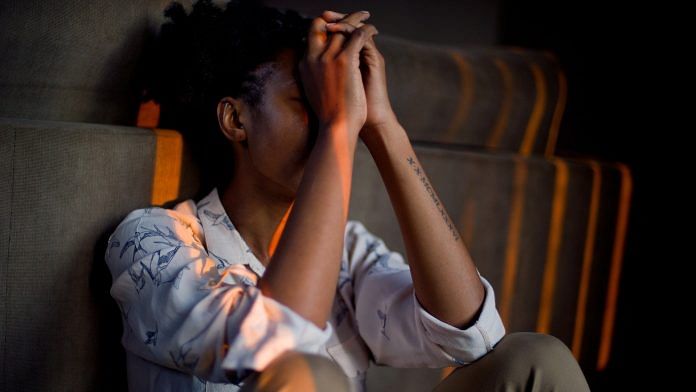Are you going through this nationwide Covid-19 lockdown silently screaming in your head? You aren’t the only one.
The lockdown has been extended for a third time, which means many of us continue to be confined to our homes.
When Prime Minister Narendra Modi announced a 21-day lockdown on 24 March, there was little understanding of how the situation would unfold since these are truly unprecedented times. But, nearly two months later, the actual effect of it the Covid crisis is sinking in.
While economists and social scientists do their number crunching and mathematical modelling to predict the coming times, there isn’t enough being said about the impact of this pandemic on mental health.
Which brings us back to the screaming.
According to a study, ‘Rebooting 2020: A Story of Covid-19 and Shifting Perceptions’ by The Mavericks India, 61 per cent Indians have been experiencing mental health-related issues due to the lockdown and the economic disruption.
The survey gathered 600 responses between April and May to gauge the collective behaviour of Indians amid the current Covid-19 crisis and understand their expectations once things settle back into their ‘normal’ state.
The survey also reported that 27 per cent of Generation Z respondents and 19 per cent of millennials said that the crisis has taken a significant toll on their mental health.
If it’s silent, how do you tell how loud it is?
This internal screaming is intangible, it’s in your head, and after a point, it has probably become a constant. We’re stuck in a monotonous cycle of cleaning, cooking, working, trying to eat in between, cooking again, cleaning again and finally going to sleep — which only feels like a nap before the same cycle begins again.
Sure, you’ve discovered your inner cooking goddess. You hear the voice of Mr Miyagi, you “wax on, wax off” and polish every surface you can find. You may have taken up a few hobbies as well, started working out to get some endorphins in your system and even rediscovered old friendships you didn’t previously find the time for.
But when you finally give up and stop — either because you’ve redone every chore thrice or because the pile of dirty dishes have begun to resemble a Penrose staircase, the silence of the lockdown monotony kicks in. That’s when you can hear the silent scream inside your head.
Wouldn’t it be better then to stay constantly occupied, you ask yourself. Your mind, however, is a muscle, and like any other muscle it needs a healthy amount of downtime.
Also read: ‘Forgive in 10 minutes’ — Russian health ministry’s mental health advisory during lockdown
Talking about mental health not enough
It would be fair to say that some people, especially those graduating this year, in between jobs, or have been let go from their jobs or are just stuck in limbo because of the lockdown, are still grappling with how to comprehend and react to this situation.
Researchers in the US warned there could be a wave of suicides as the forced isolation and economic uncertainty weigh on people’s minds. One research paper, that is yet to be peer-reviewed, predicts as many as 75,000 “deaths of despair” resulting from suicide and substance abuse. An Indian study has already reported that suicide was the leading cause of lockdown-related deaths in the period between 19 March and 2 May.
In the UK, which is currently observing ‘mental health awareness week’, experts say that real-time monitoring of mental health issues should be a key priority, both among the general population and at-risk groups.
If you scroll through social media, you can see posts that include everything from simple one-liners to sonnets describing one’s struggle with mental health.
https://twitter.com/MeghanaParmar2/status/1262362257775661058?s=20
https://twitter.com/veteran10525/status/1262342041838600194?s=20
At the specialty tech de-addiction centre in Bengaluru’s NIMHANS, psychologists are seeing patients fall back into old habits — watching porn, gaming and binge-watching Netflix.
The cases range from individuals as young as 11 to middle-aged adults.
According to a 2016 paper published in the Indian Psychiatry Journal, suicide is the leading cause of death among those aged 15–29 in India, which also notes “there remains a massive unaddressed need within the population”. (moved up)
But for a society that has largely kepts it’s mental health issues under wraps, simply acknowledging the problem isn’t enough. It requires concrete action.
If the lockdown has been a time of reflection for you, reflect on this — mental health should be talked about not just by woke Instagrammers. Even your non-woke family members, office colleagues and house help could benefit from conversations around mental health and helplines. Reach out.
Views are personal.
Also ready: Sunlight can’t cure Covid-19, but don’t dismiss its healing powers



